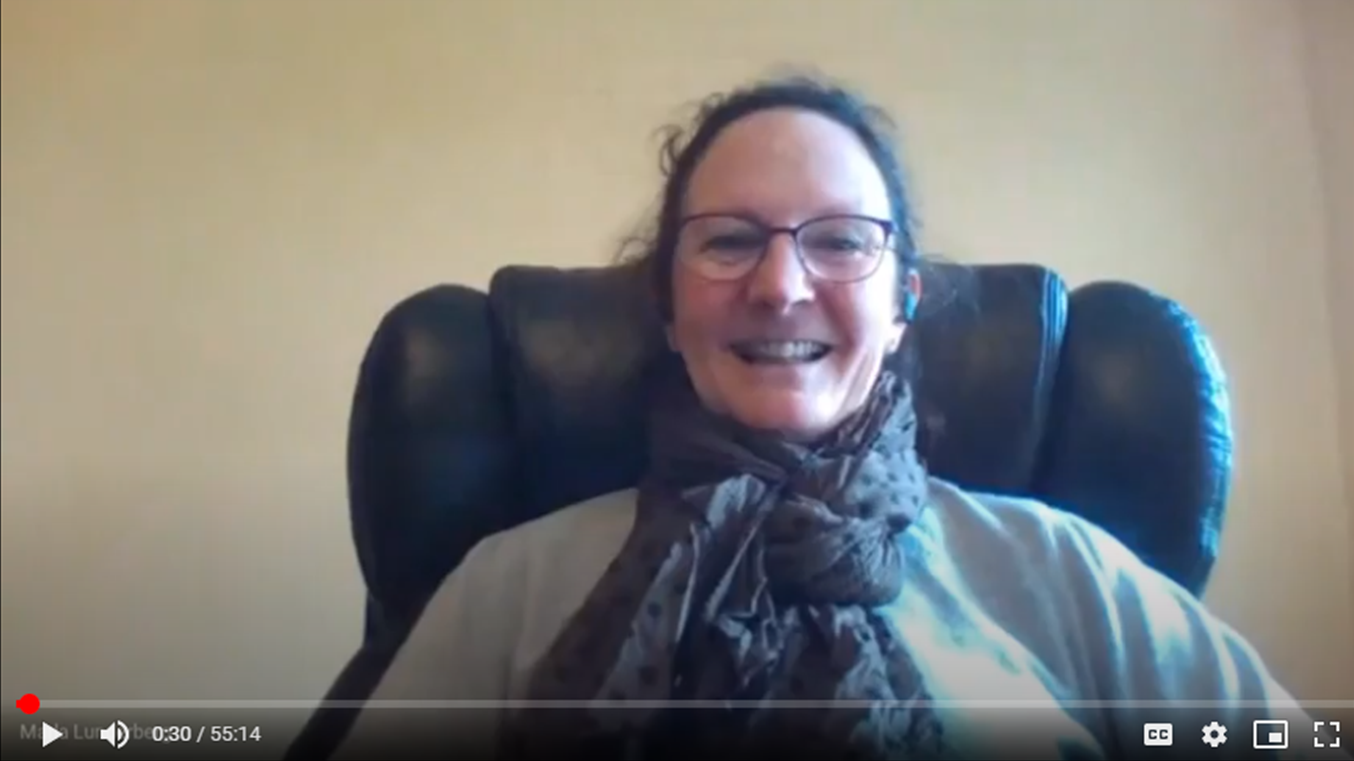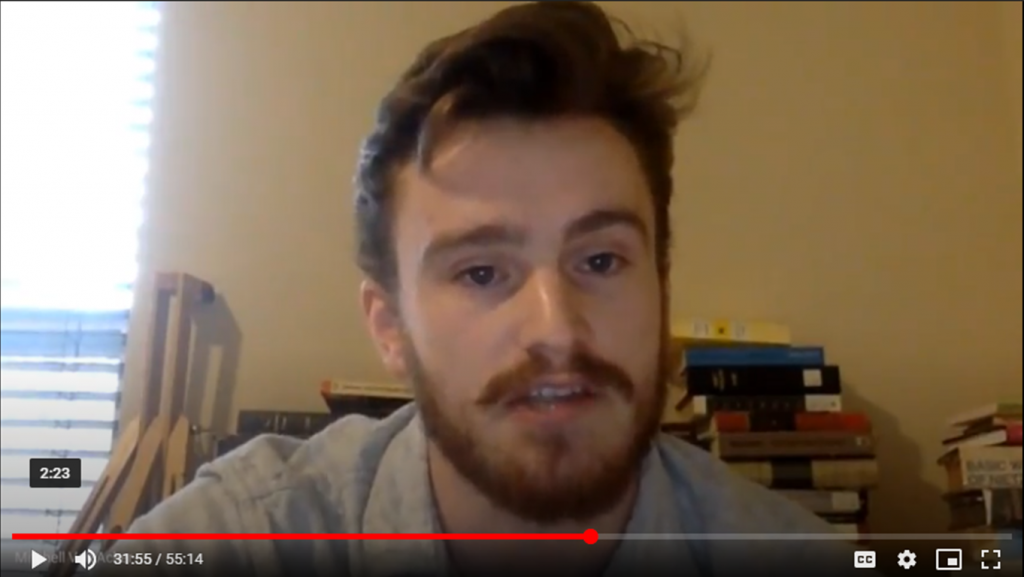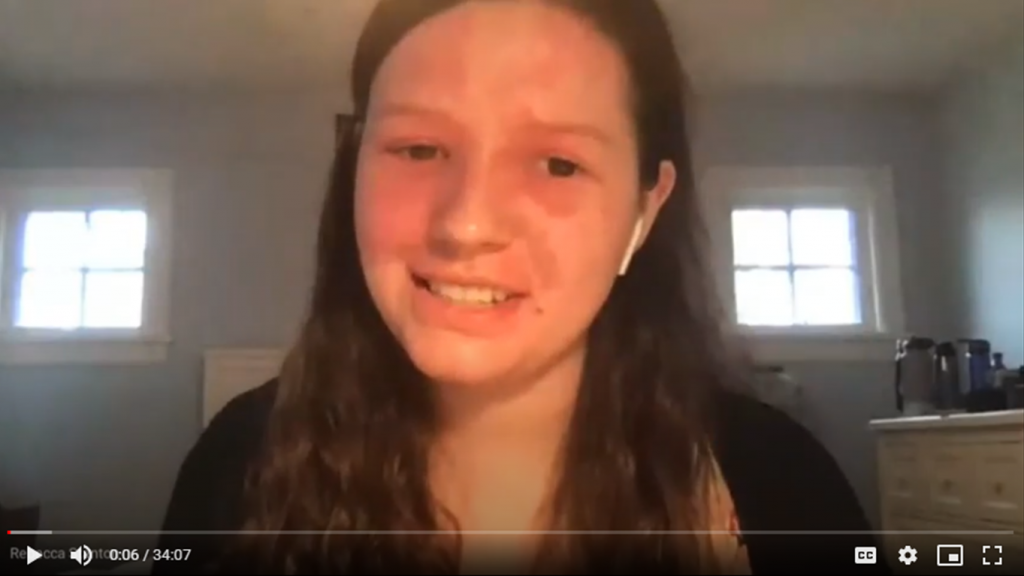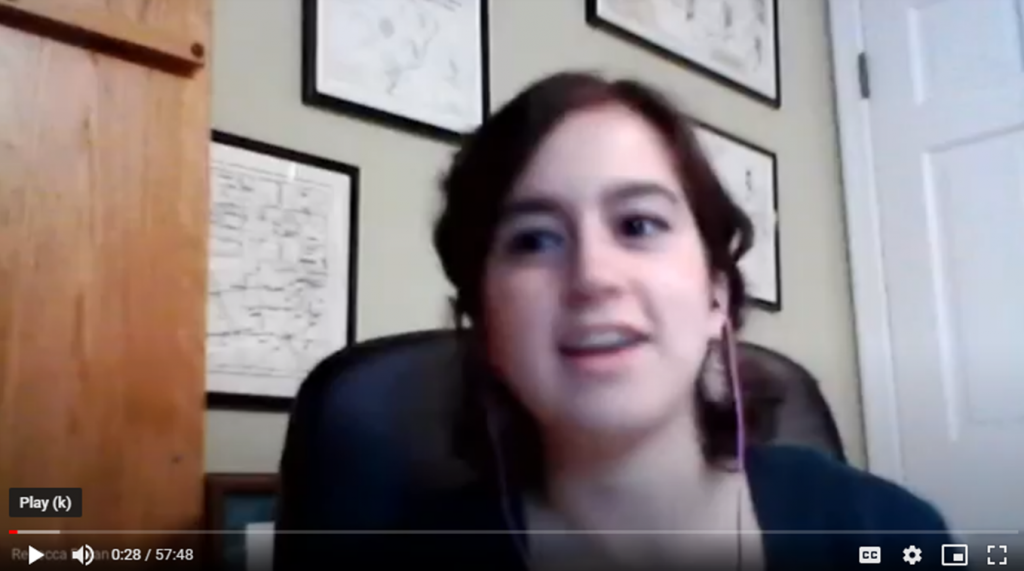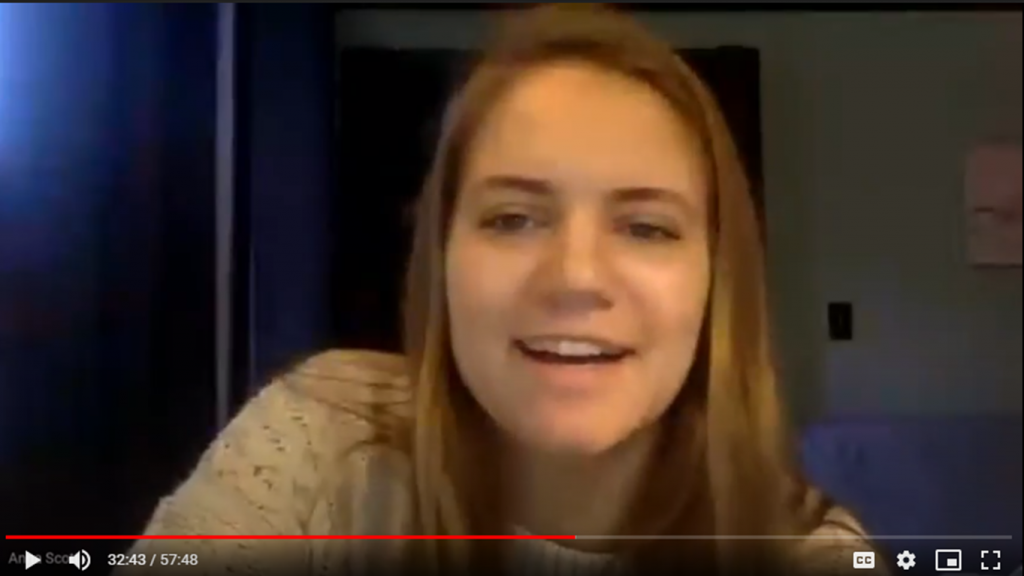by Marla Lunderberg
“Thank you for your presentation. Does anyone have any questions?”
A pregnant pause. The kind that sometimes tempts me to fill the silence with my own voice, my own questions. But after a moment, my computer screen shows a mic being unmuted. A student’s voice rings in my headphones. My student is posing a question to a peer from another college, a peer who has just presented a paper on this Saturday morning in late March.
Hope College had just completed its first week of virtual classroom experiences, and here we were, hosting and encouraging students’ participation in an online conference.
The Michigan Medieval & Renaissance Undergraduate Consortium hosts a call for papers every fall, leading to a regional conference for undergraduates every spring. Recent years have seen the conference held at Calvin University and Albion College; Hope College had agreed to host the Spring 2020 conference. By mid-February, papers had been accepted from students from Albion, Calvin, Olivet and Hope; rooms were reserved; plans for an early breakfast and a midday luncheon were ironed out—and then, in mid-March, plans for gatherings across the nation were curtailed by the onset of the coronavirus pandemic.
It would have been easy to cancel the conference, to apologize to students for the lost opportunity, to offer a verbal affirmation of their submissions, and to express the hope that they’d continue their work as scholars as soon as new opportunities opened up. It would have been understandable if everyone, students and faculty mentors alike, were to breathe a joint sigh of relief: one fewer obligation to meet during the coming days of uncertainty and new challenges. But instead, we sent an email to students to ask if they wished to try something new: participating in a virtual conference experience. It took a while before we heard back from the students—and I held my breath as I waited.
This was a leap of faith for us all. For my part, because we sent the invitation the week before spring break, I’d not yet hosted a video classroom of any sort. My experience was limited to a single CIT training session on how to send out an invite for a Google Meet. I had attended enough small ZOOM meetings, though, to have seen what can go wrong: fuzzy video feeds, wonky audio connections, too many people trying to talk at once or not at all.
Nevertheless, we were convinced it was worth it to take the leap. Conferences are more than just a list of speeches: they give people who share a common interest and expertise the opportunity to communicate together. New research is shared; questions are posed; arguments are interrogated. Undergraduate conferences are particularly important in providing students the opportunity to practice critical thinking habits that will serve them well in whatever field they pursue.
One by one, students returned from spring break and emailed us to see if it was too late to confirm their commitment and to ask last-minute questions. We promised to help them prepare for the newness of this event. We offered technical guidance and we encouraged them to consider the opportunity to put this on their future resumes: “Paper presentation at the first VIRTUAL Michigan Medieval & Renaissance Consortium, a learning community responding in a creative way to the early challenges of the Covid-19 pandemic.” Of the eleven students signed up for the original event, all but one committed to the online conference.
Although we were learning on the job, we came up with a set of guidelines that I can recommend for anyone in a similar situation. We reminded students to practice their presentations in advance, with an eye to the time limit and to the pace of their speaking voice. We suggested they review their material so as to see it afresh and to be prepared to answer questions. We reminded students to dress for the event, just as they would dress up for a virtual interview. We asked them to think about the lighting and the background for their virtual presentations. We offered practice sessions for two evenings before the Saturday morning event, so that students could sign in to the Google Meet, talk with us about any questions they might have, and practice going into “present now” mode. These sessions offered great opportunities to talk more generally about professional conference goals and to encourage the students to be active in listening and responding to each other’s papers.
That active participation was my favorite part of the Saturday experience. Sessions on Christianity and Culture, on Medieval and Early Modern Marriage, and on Women’s Agency invited students to listen to each other, to learn from each other—and to practice interacting with their peers through the Q & A at the end of each session. Before the conference, I’d feared that students might be tempted to present their papers and then disappear from view, but these fears were unfounded. The energy that otherwise would have fired across a room now lit up our screens. Questions about Lear’s Fool and about the staging of The Taming of the Shrew invited students to think on their feet. Together, we could explore new paradigms and engage with the world of ideas—no matter the current challenges of distant socializing.


